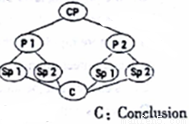题目内容
20.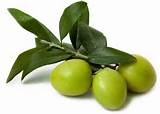 An Oil for Life
An Oil for Lifeolive
Maria Alcala of Madrid speaks for many Mediterranean people when she says that"a meal without olive oil would be a bore."No one knows when the Mediterranean civilizations fell in love with olives.That occurred before recorded history.However,there is evidence that the cultivation (种植) of olive trees began in countries around the Mediterranean Sea in approximately 4000B.C.,and 2000years after that people in the eastern Mediterranean area began to produce oil from olives.The Mediterranean still accounts for 99percent of all world olive oil production.
From ancient times until today,the basic process of producing the oil is the same.First,whole olives are pressed hard into pieces.Then,the liquid is separated from the solids.After that,the valuable oil is separated from the water.
Many olive growers make their ancient traditions continue and still harvest the olives by hand."We harvest in the traditional way,"says Don Celso,an olive farmer from Tuscany,Italy."It would be less expensive to do it with machines,but it's more a social thing.Twenty people come to help with the harvest,and we pay them in oil."
Olive oil has had a variety of uses through its long history.In ancient times,olive oil was used as money and as medicine.It was even used during war-heated up and dropped down on attackers.It is still used in religious ceremonies.It is great for protecting the freshness of fish and cheese.There are even olive oil lamp and olive oil soaps.
One important study shows that Mediterranean people have the lowest rate of heart disease among Western nations.This is partly associated with their frequent use of olive oil.Other studies show that food cooked in olive oil is healthier,and that eating olive oil twice a day reduces women's risk of getting breast cancer.The world is beginning to understand its benefits,and olive oil is no longer an unusual sight at dinner tables outside the Mediterranean area.The olive oil producing countries now sell large amounts of olive oil to countries in Europe,Asia,Africa,and North and South America.
Olive oil improves the lives of people everywhere.Its benefits,recently confirmed by science,were already understood in ancient times.Mediterranean people are happy to share their secret with the world.
48.Which step occurs first in olive oil production?D
A.Drying the olives under the sun.
B.Separating the oil from the water.
C.Separating the liquid from the solids.
D.Pressing the whole olives into pieces.
49.Which use of olive oil is NOT mentioned in the passage?A
A.Paint.
B.Medicine.
C.Money.
D.Soap.
50.Why does the author include information about several studies of olive oil?C
A.To give reasons why olive oil is similar to medicine.
B.To show how the biology of Mediterranean people is special.
C.To explain the growing interest in olive oil around the world.
D.To prove that olive oil is more important for women than for men.
51.What is the passage mainly about?B
A.Discussing olive oil production outside the Mediterranean area.
B.Explaining the history,production,benefits,and use of olive oil.
C.Showing why olive oil is produced around the Mediterranean Sea.
D.Comparing Mediterranean olive oil with that produced in other places.
分析 本文属于说明文阅读,作者通过这篇文章主要向我们描述了橄榄油的历史、生产、效益和用途,解释了世界各地对橄榄油越来越大的兴趣.
解答 48.D.细节理解题.根据第二段:First,whole olives are pressed hard into pieces.Then,the liquid is separated from the solids可知橄榄油生产中第一步是把整个橄榄压成碎片;故选D.
49.A.细节理解题.根据第四段:In ancient times,olive oil was used as money and as medicine.There are even olive oil lamp and olive oil soaps可知橄榄油的用途有药物,钱和肥皂;故选A.
50.C.推理判断题.根据最后一段:Its benefits,recently confirmed by science,were already understood in ancient times.Mediterranean people are happy to share their secret with the world可知关于橄榄油研究的信息为了解释世界各地橄榄油越来越大的兴趣;故选C.
51.B.主旨大意题.文章主要讲了橄榄油的历史、生产、效益和用途,解释了世界各地对橄榄油越来越大的兴趣;故选B.
点评 考察学生的细节理解和推理判断能力,做细节理解题时一定要找到文章中的原句,和题干进行比较,再做出正确的选择.在做推理判断题不要以个人的主观想象代替文章的事实,要根据文章事实进行合乎逻辑的推理判断.

练习册系列答案
相关题目
11.________ the World Table Tennis Championships in Suzhou cost a lot,it will surely bridge the distance between people throughout the world.( )
| A. | When | B. | While | C. | If | D. | As |
8.We made Tom __________ director of the department.( )
| A. | the | B. | / | C. | a | D. | an |
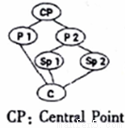 B.
B. 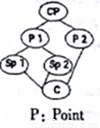
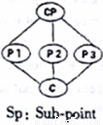 D.
D. 